Imagine this: Your head hits the pillow, and you immediately get the sensation that you are curling up in a cloud. The blankets wrap you tight like a cocoon, and all is right with the world. Before you know it, you’ve drifted off into a land of slumber where you meet the man of your dreams, win the lottery, and can eat all the Marshmallow Dream Bars in the world without ever gaining a single pound. Sound too good to be true? Maybe so. But getting a good night’s sleep isn’t an urban legend. It CAN happen. And it SHOULD happen. Regularly. The lottery and endless MDBs, well, we’ll just keep dreaming…literally.
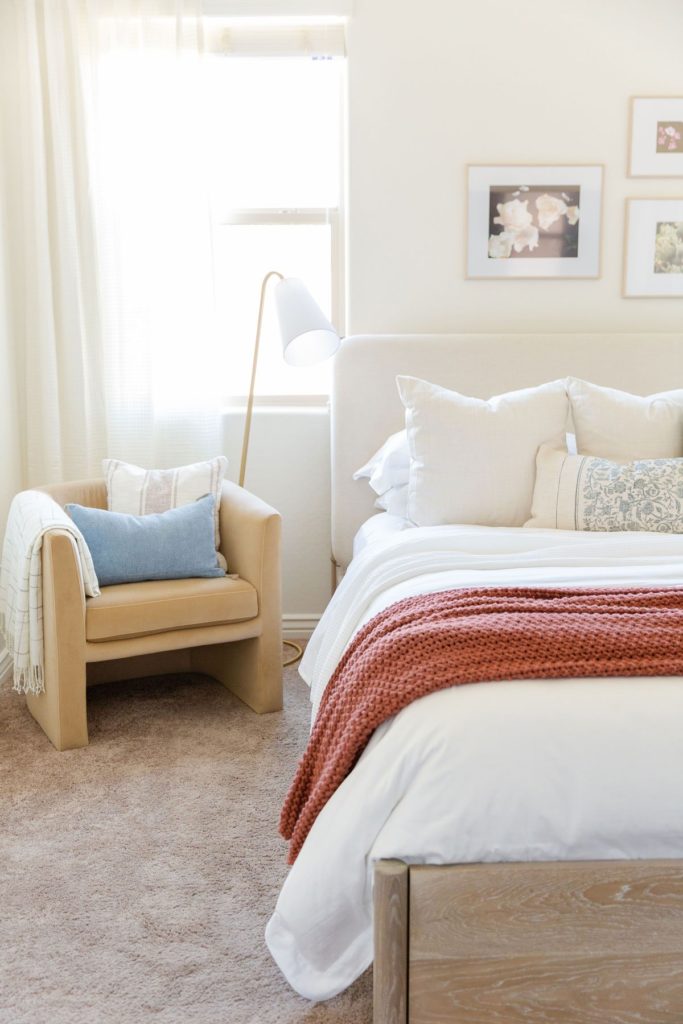
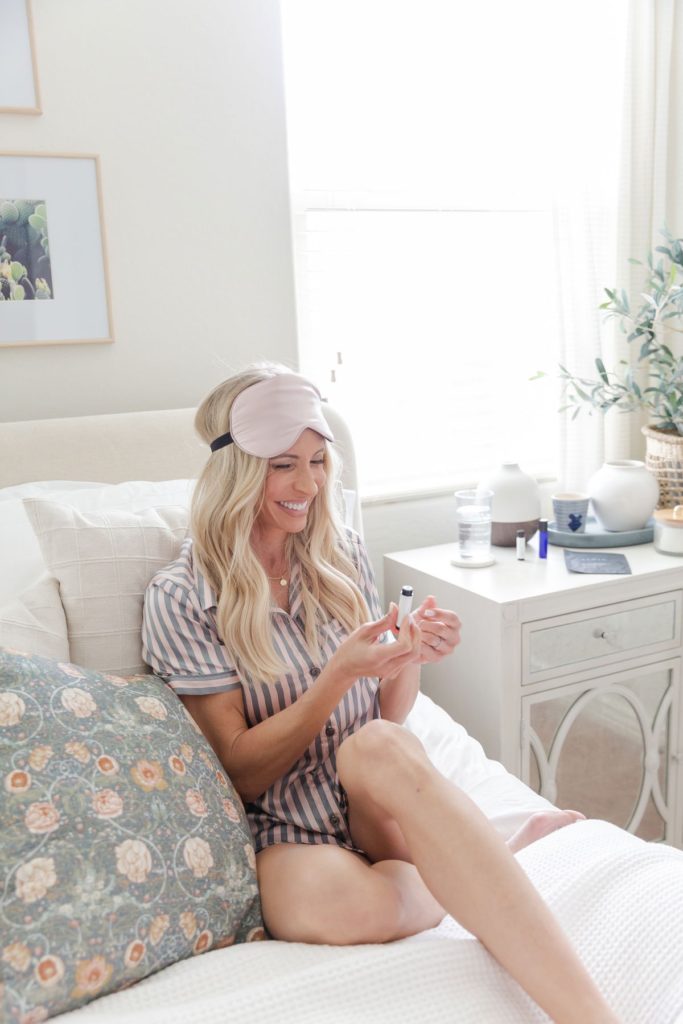
Sleep is one of those things that often gets overlooked. I am the first to admit that I don’t always turn off the lights OR put down my phone at a reasonable hour. I can’t! Or so I’ve conditioned myself to believe. I have four humans who need me, businesses and projects galore, and sometimes, at the end of the day, once the world gets quiet and I can truly listen to myself think, is when I do my best work.
Outfit + Bedroom Details:
Striped PJ Set (pink and white version here and blue available here), Pink Sleep Mask, Oil Diffuser (also love this one), Lavender Oil, Floral Throw Pillow, Blue Floral Striped Throw Pillow, Floral Framed Art, 3 Wick Candle, Faux Eucalyptus Tree
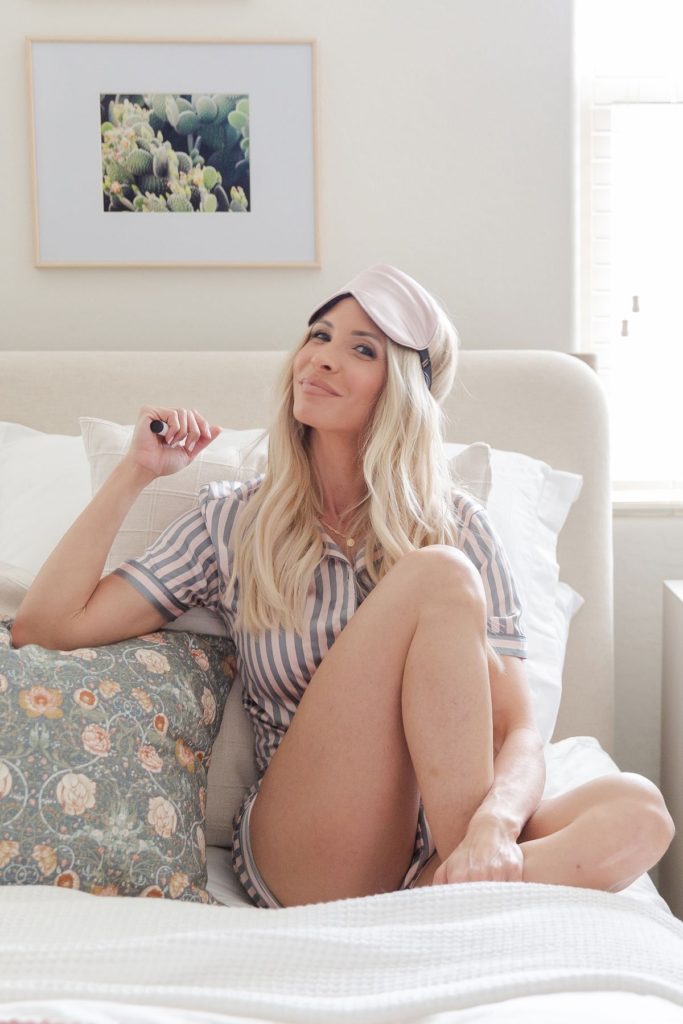
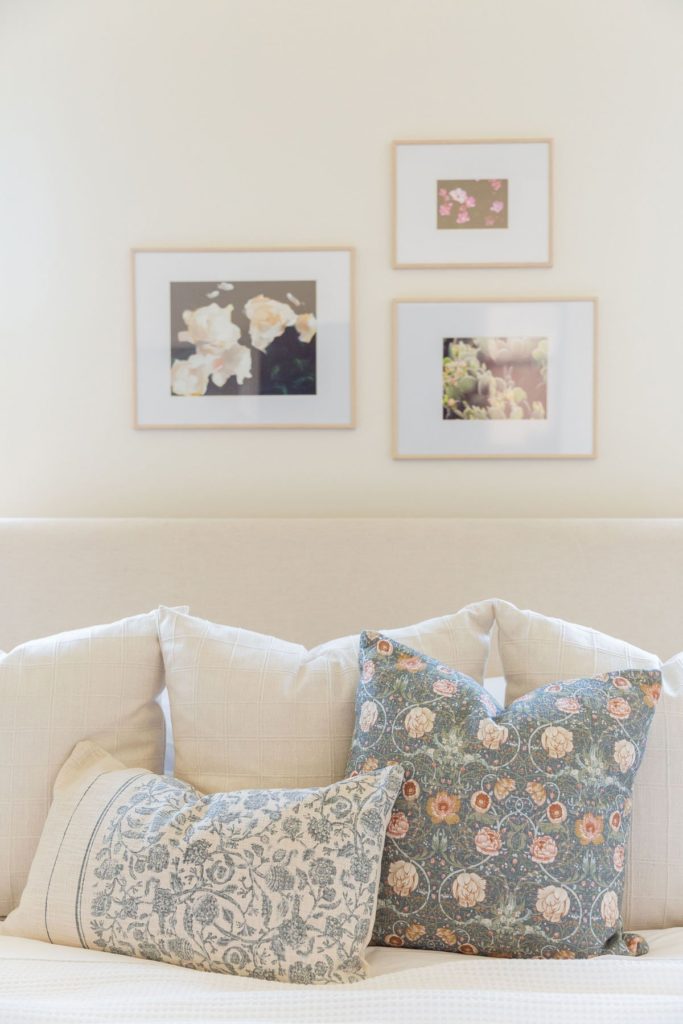
So, how much sleep do we need? The experts tell us that we should be shooting for getting between 7-9 hours of shut eye consistently every single night. But if you are like me, and you are someone who isn’t placing enough value on getting those ZZZs, then you might be in for a wake up call. Pun intended. 😉
Health Benefits of Getting Enough Sleep
Ever felt super stressed when you go to bed but then wake up with a new outlook on life or a recharged sense of purpose or control over the previously perceived stressful situation? I think it’s safe to say we all have. When we sleep, our brain processes emotions. This is important because our mind needs this time to recognize how we truly feel about a situation, and it allows us to react in a way that’s more appropriate or conducive to our goals. When we’re not getting enough sleep, our brains can’t do this, leaving us feeling more negative emotions and fewer positive emotions. If the whole “feel like you can take on the whole dang world” benefit wasn’t enough, here are even more health benefits to getting enough sleep:
- Better Athletic Performance: If you’re someone who likes to work out, or if you’re training for a race or competition, you’re going to see better results if your sleep patterns are consistent. When we don’t get enough sleep, our body and brain are robbed of energy. This can also lead to lack of motivation, improper muscle repair, and even injury.
- Increased Mental Clarity: Did you know sleep plays a role in our overall focus? Think about it. How many times have you stayed up way too late binge watching your favorite show on Netflix only to find yourself unmotivated and unfocused the next day? (Slowly raises hand). It’s because sleep is our body’s way of resting (Well, duh, Heidi). Sleep plays a major role in how our brain learns and processes memories. When we aren’t getting enough sleep, our brains have a hard time focusing and taking in new information to learn and store for later.
- Weight Loss / Weight Management: When we don’t get enough sleep, we run the risk of our hormone levels fluctuating. I’m talking about things like cortisol (a stress hormone), leptin, and ghrelin. When these levels aren’t at their set point, we may find ourselves feeling hungrier, mindlessly snacking, or getting those late night cravings that are hard to resist?ultimately leading to weight gain or excess abdominal fat stores.
- Boosted Immune System: Our immune system functions the most optimally when our system as a whole is functioning optimally. This includes sleep. When we’re not getting enough sleep, or when we have inconsistent sleep schedules, our immune cells will change their behavior. This can lead to increased amounts of bad bacteria in our body or even a higher susceptibility to catching viruses or illnesses.
How to Create a Bedtime Routine for Adults
So how can you improve your sleep quality? The simple answer: Create a bedtime routine. You know I’m big on my morning routine, and guys, establishing a bedtime routine is just as important. Having a set bedtime routine that we follow night after night can help reduce late night stress and anxiety, and it can help us feel more ready to accept rest and doze off into a night filled with our favorite dreams. When we feel anxious or worried before bed, our sympathetic nervous system kicks in. This can lead to increasing those worrying thoughts, and it can ultimately lead to insomnia. You know, the nights you spend wide awake thinking about all the possible worst-case scenarios. When you follow a routine, your mind is more focused on other tasks, and your brain is encouraged to relax instead of thinking about all those what ifs.
Don’t Engage in Topics That Will Excite You Before Bed
It might seem obvious that anxious, intense, or emotionally charged conversations and topics have a negative impact on your sleep. The truth is that these topics active your mind and sympathetic nervous system…you know the control button on your fight or flight response. The kicker is that when we lack sleep, our nervous system activity increases, and so the cycle begins. To help encourage good sleep and get into a more relaxed state, dedicate the last couple hours of your evening to something that will relax you. This means no nighttime television drama, no social media comparison or scrolling hot topics to see what the trolls are saying, and no work before bed. Make the last couple of hours your time to wind down. Here are a couple of things to do instead of engaging in stressful topics:
- Take a relaxing bubble bath
- Read a book
- Snuggle up with your kiddos and tell them a bedtime story
- Meditate, pray, or reflect on your day in your journal
Whatever you do, focus that time on something that will relax you and help you settle in and settle down for the night.
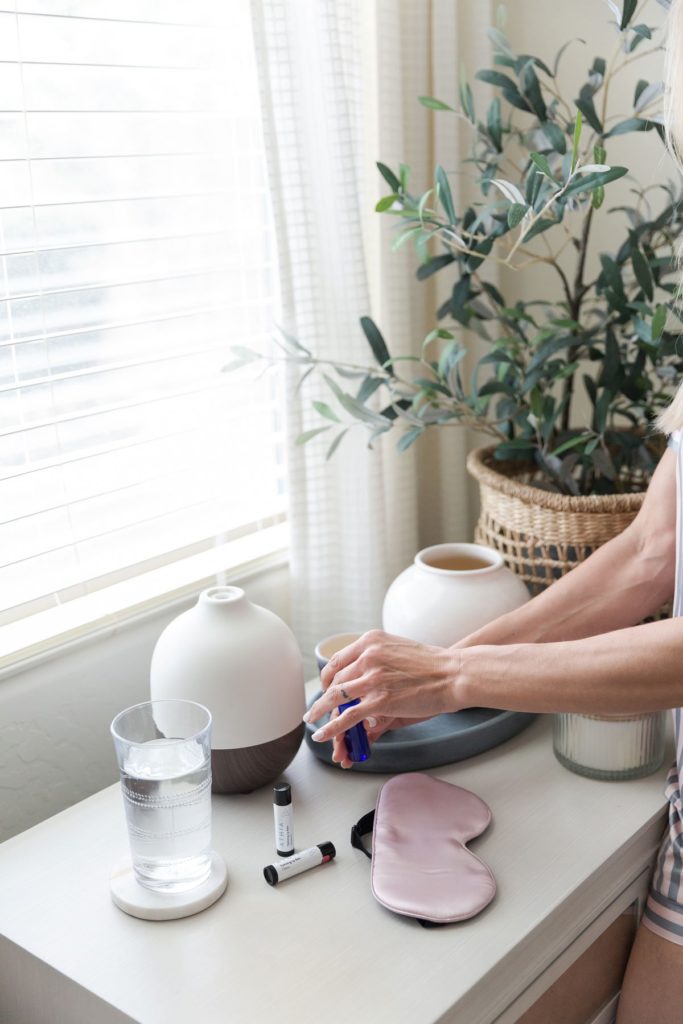
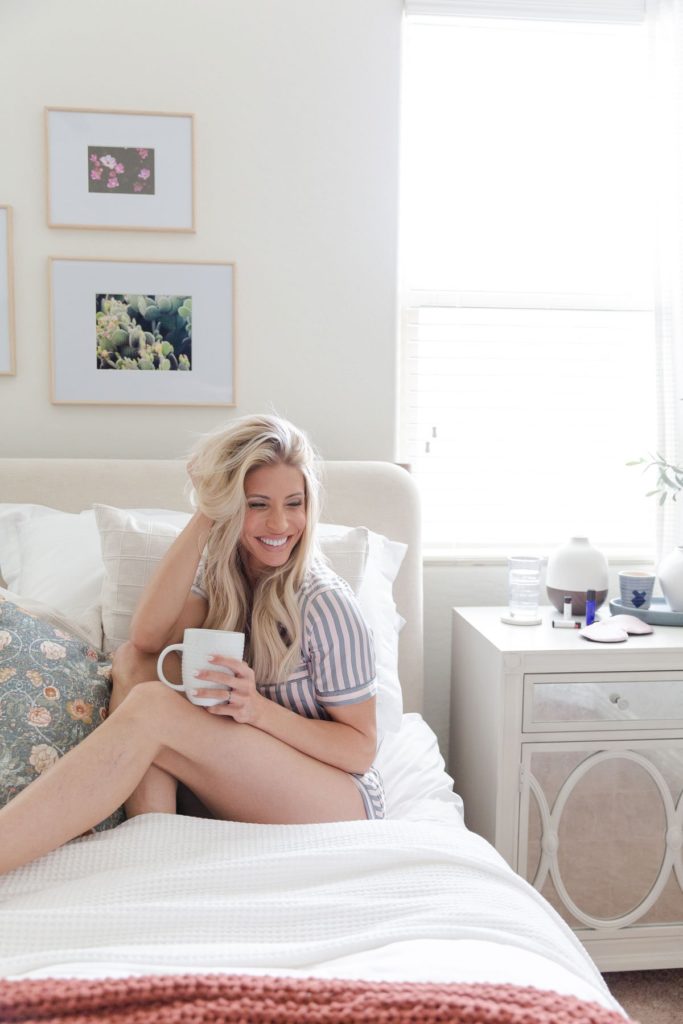
Skip the Alcohol + Afternoon Caffeine: Drink a Relaxing Tea
There’s something about a drink that breaks up our day whether it’s a morning cup of coffee or a nightcap. But, our favorite day breakers might also be sleep blockers. We all know that alcohol is a depressant, right? So, it would make sense that if we have a drink before bed, we’ll have an easier time falling asleep. Wrong! Alcohol is a central nervous depressant that causes brain activity to slow down, and while it may help us feel like we’re tired or ready for bed, drinking alcohol has actually been linked to poor sleep quality. This can include symptoms of insomnia or worsen symptoms of sleep apnea. Speaking of poor sleep quality, let’s talk about our favorite morning drink (or maybe just my favorite morning drink): Coffee. Caffeine levels can actually stay elevated in our bodies for up to 6-8 hours, which may interfere with our ability to fall asleep at night or our ability to fall into a deep sleep. If you are someone who drinks caffeine on a regular basis, try to limit your intake so that you’re done before 3:00 in the afternoon every day.
You guys, there is something very comforting about cozying up with a warm beverage or drinking something other than water all day. That’s why a relaxing caffeine-free tea is one of my favorite ways to unwind at night. There are tons of great options out there depending on what you enjoy. I personally enjoy anything with chamomile and valerian root to help get my mind moving towards sleep. A great and refreshing option is Mother’s Little Helper (I mean, the name itself speaks to me). Five minutes of steeping and I’m ready to relax in bed.
Set the Mood
What’s essential for sleep? Setting the right mood in your bedroom. Not the kind of mood for romance, but the kind of mood for some sleep. What’s the opposite of hot and steamy? 65 degrees, aka, the ideal temperature for sleeping according to the better sleep council. Now that you’ve set the temperature, lighting is next, starting with your electronics. You’ll want to make sure your alarm clocks, TVs, cable boxes, and any of those bright annoying small lights are not affecting your sleep. This doesn’t mean that you can’t have them. It just means that you should make sure these light sources are not in a place to impact your sleep. For me, that’s a big one. On that same note, make sure you’re creating a dark space with room-darkening blinds. No one likes to sleep in the bright bright sun (unless you’re napping on the beach, of course). Bonus mood-setter: diffusing lavender oil before bed. It’s relaxing, and it just smells great.
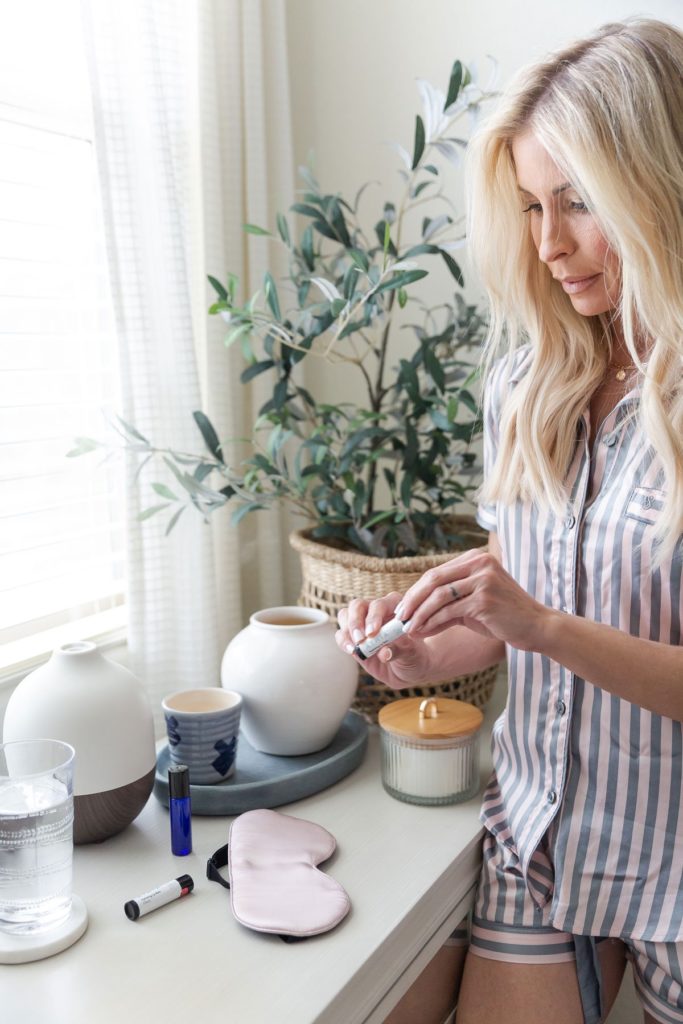
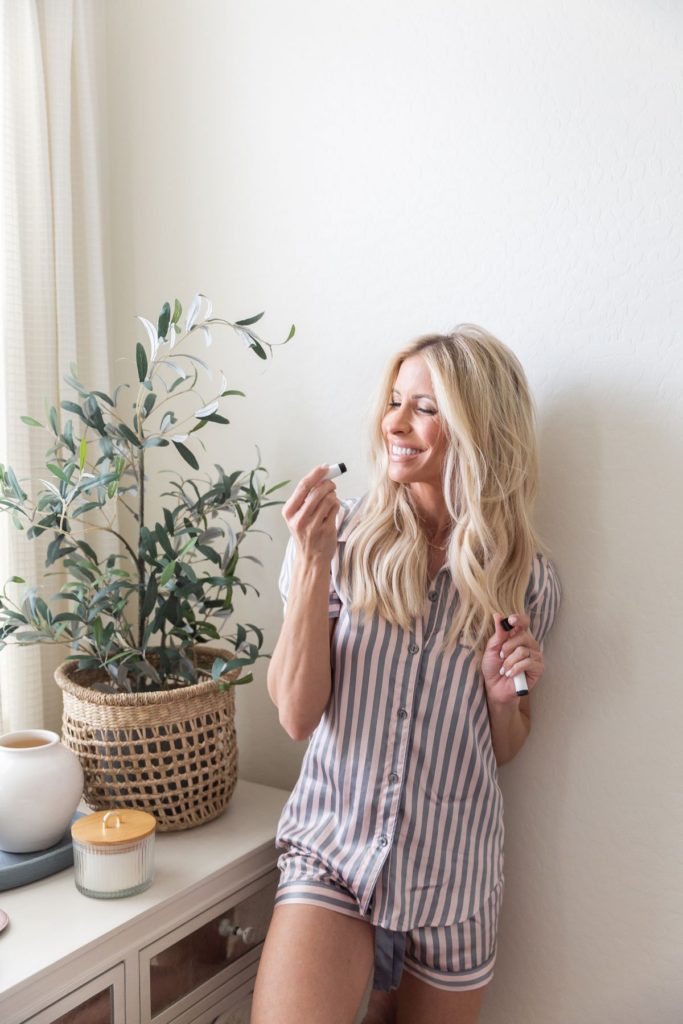
Get Off Your Screens
We all do this! We say we’re going to bed, and before we know it, somehow three hours have mysteriously disappeared while we scroll TikTok. Don’t even pretend like you haven’t done this! But our screens may be the reason we’re not getting enough sleep, not just because we’re spending the time we should be sleeping watching people’s videos, but because most of our phones, TVs, or electronic devices are emitting blue light. Blue light can affect our circadian rhythm by tricking our brain into thinking it’s still early or daytime. This causes our melatonin and other sleep-hormones to decrease, which then causes us to feel less relaxed, less tired, and less ready to fall into that much-needed REM cycle.
Ways we can combat this include:
- Wearing blue light blocking glasses
- Download an app that blocks blue light on your devices
- Stop watching TV or scrolling social media 2 hours before bed. We can do this!!!
Don’t Eat Late at Night
Evening snacking is a tough habit to break. But if you’re finding that your sleep quality is coming up short, you may need to turn to your pantry as the culprit. When we eat late at night, the natural release of both our human growth hormone and melatonin get wonky. I talk about it a lot, and it’s so true: Our body works as a whole system. When one part gets messed with, it can have some serious effects on the other parts. Try to limit your food intake to an appropriate hour and give your body a couple hours to digest before hitting the sheets. Your digestive system, hormones, and waistline will all thank you.
What’s one thing you think is standing in the way of you and a good night’s sleep? Share it in the comments!
xo,
Related reading:
Sleep Is Overrated. Not.
Healthy Habits: Setting Emotional Boundaries
Sharpen the Saw || Unplug and plug IN to LIFE!
11 Tips for Stress Management
Less Is More: Accomplish Your Goals by Saying NO!

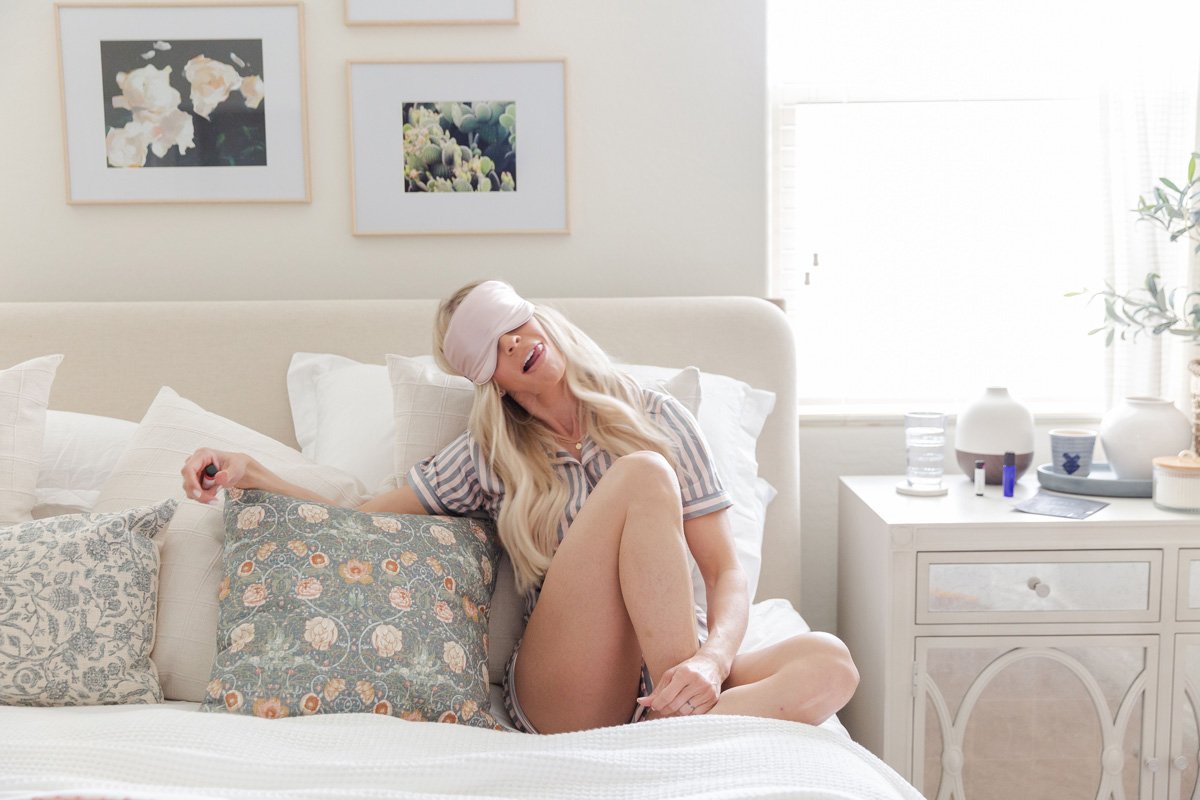
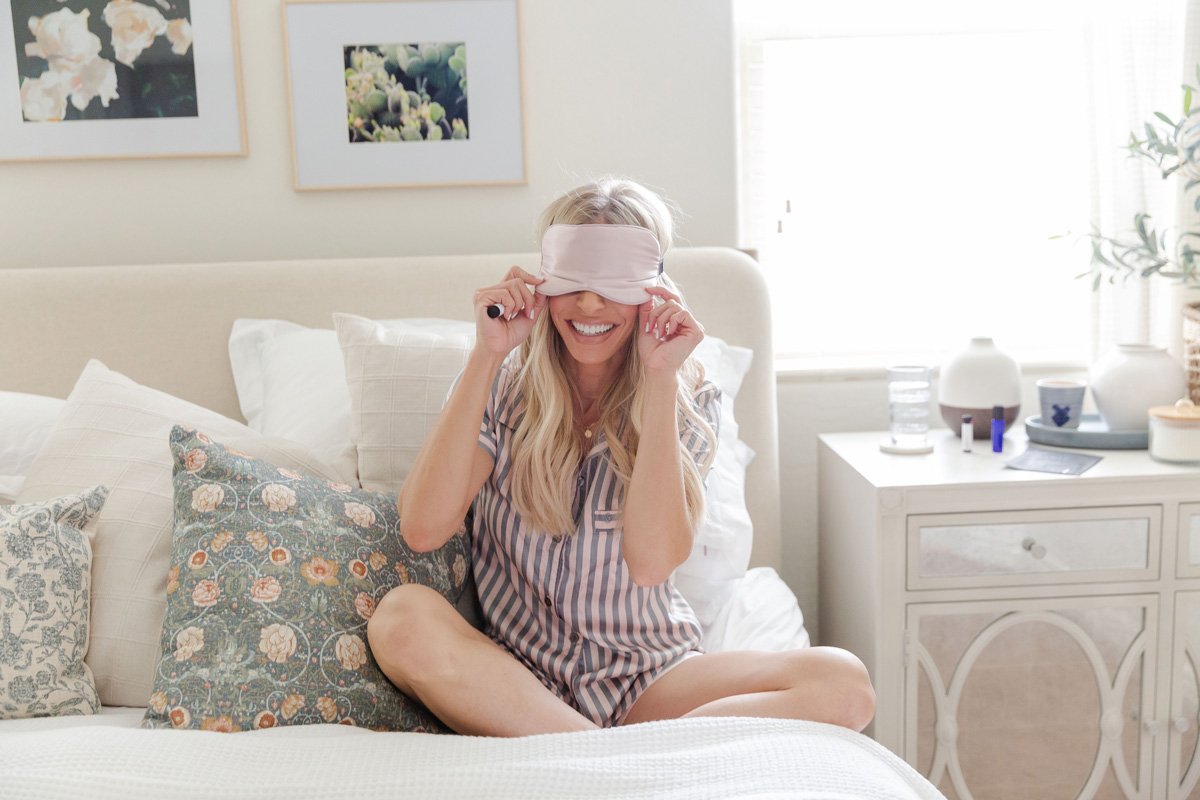
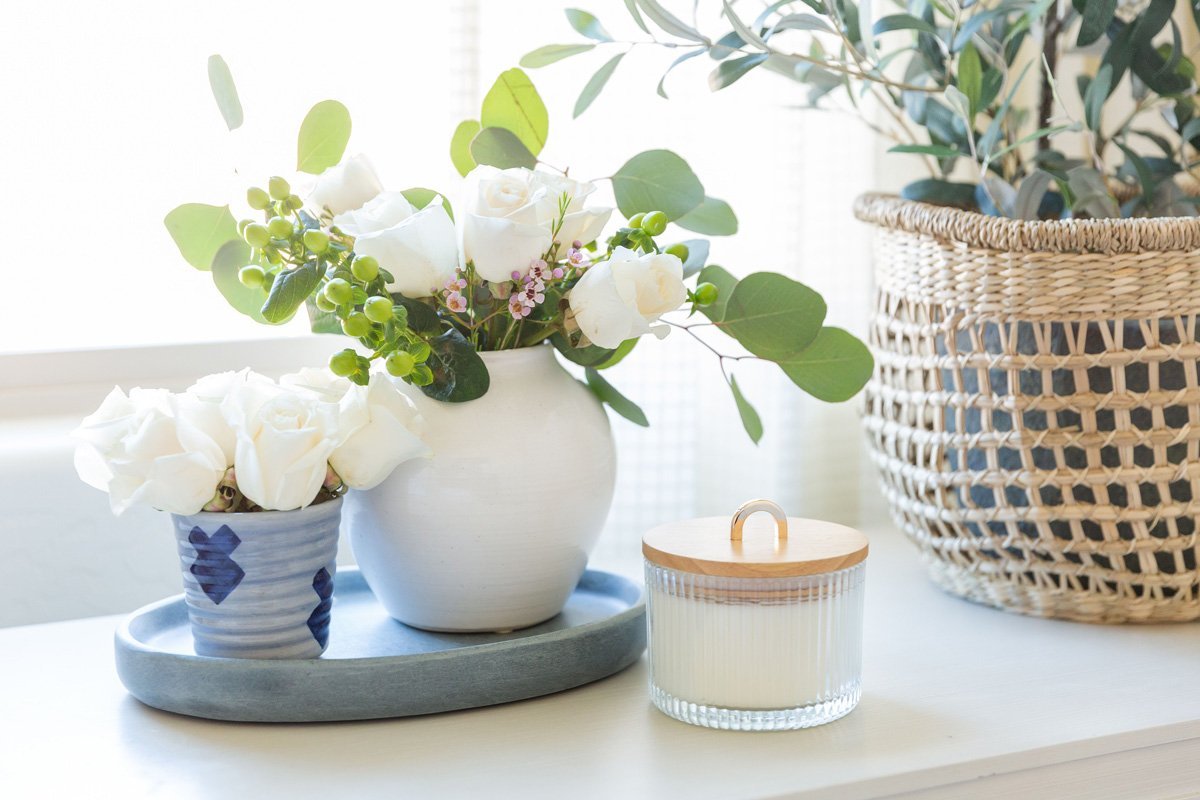
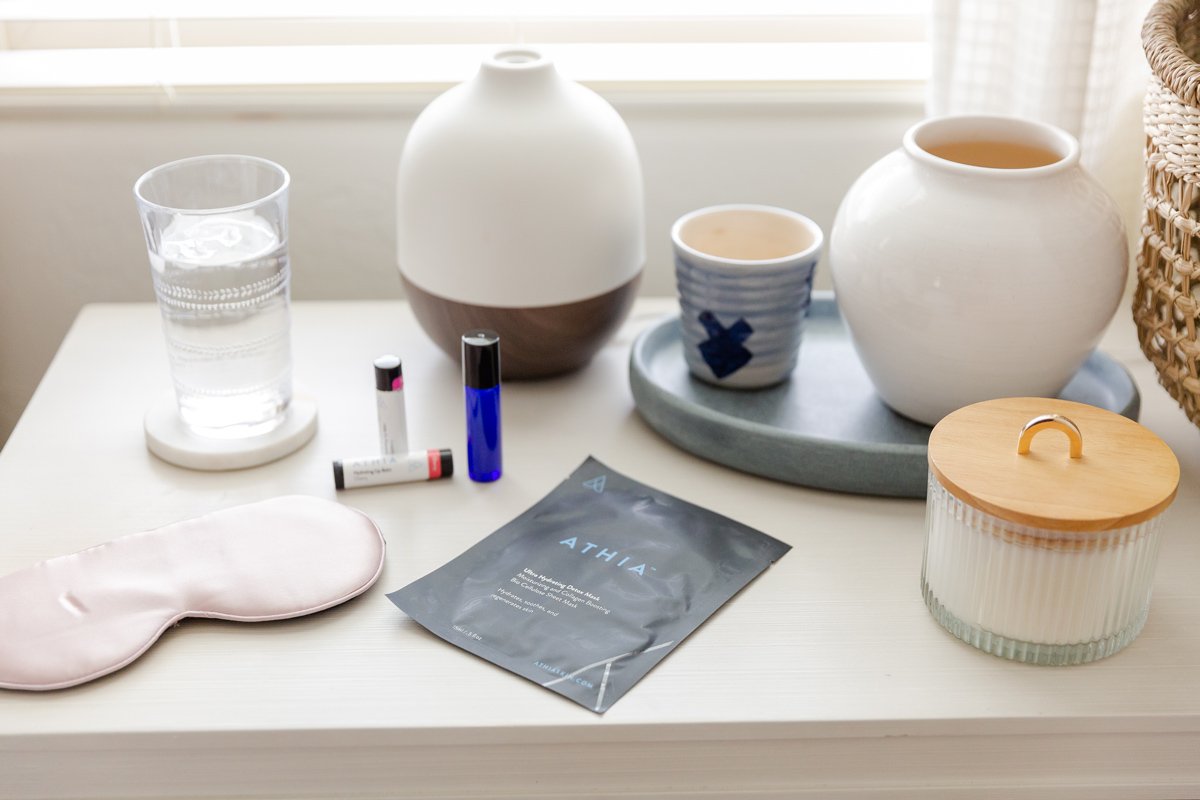
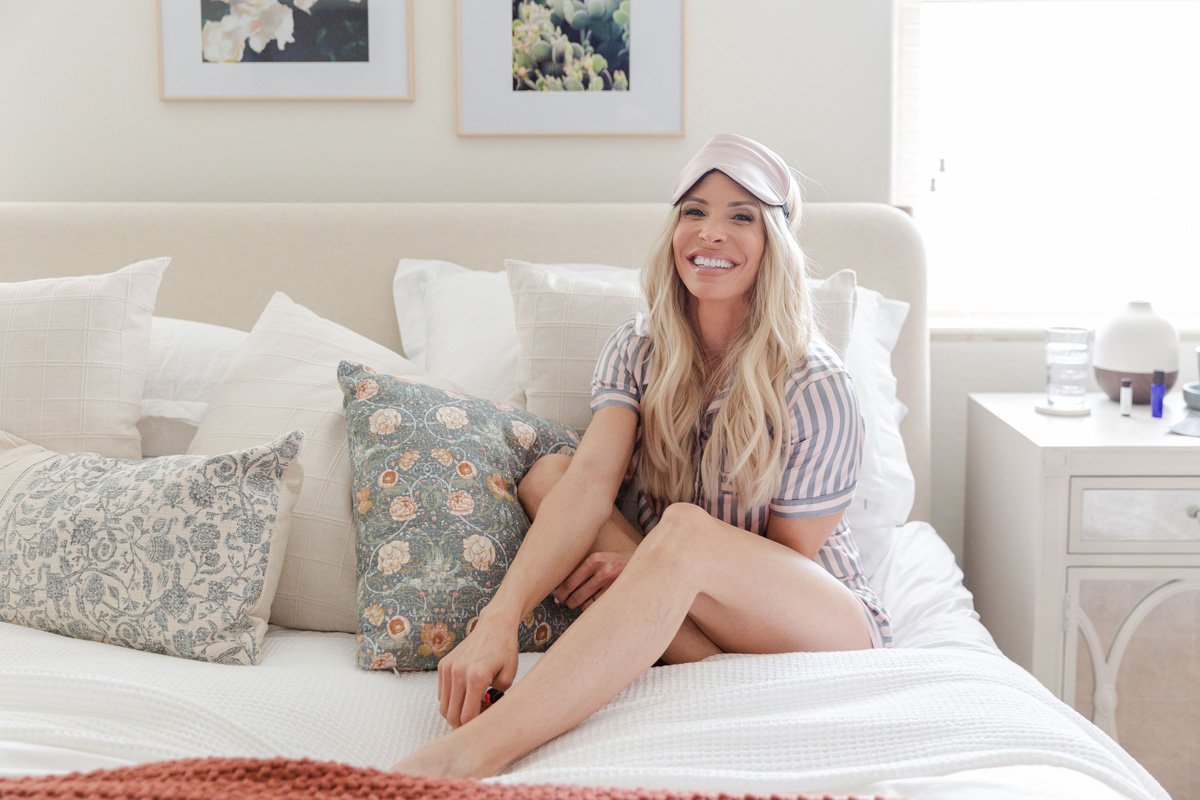
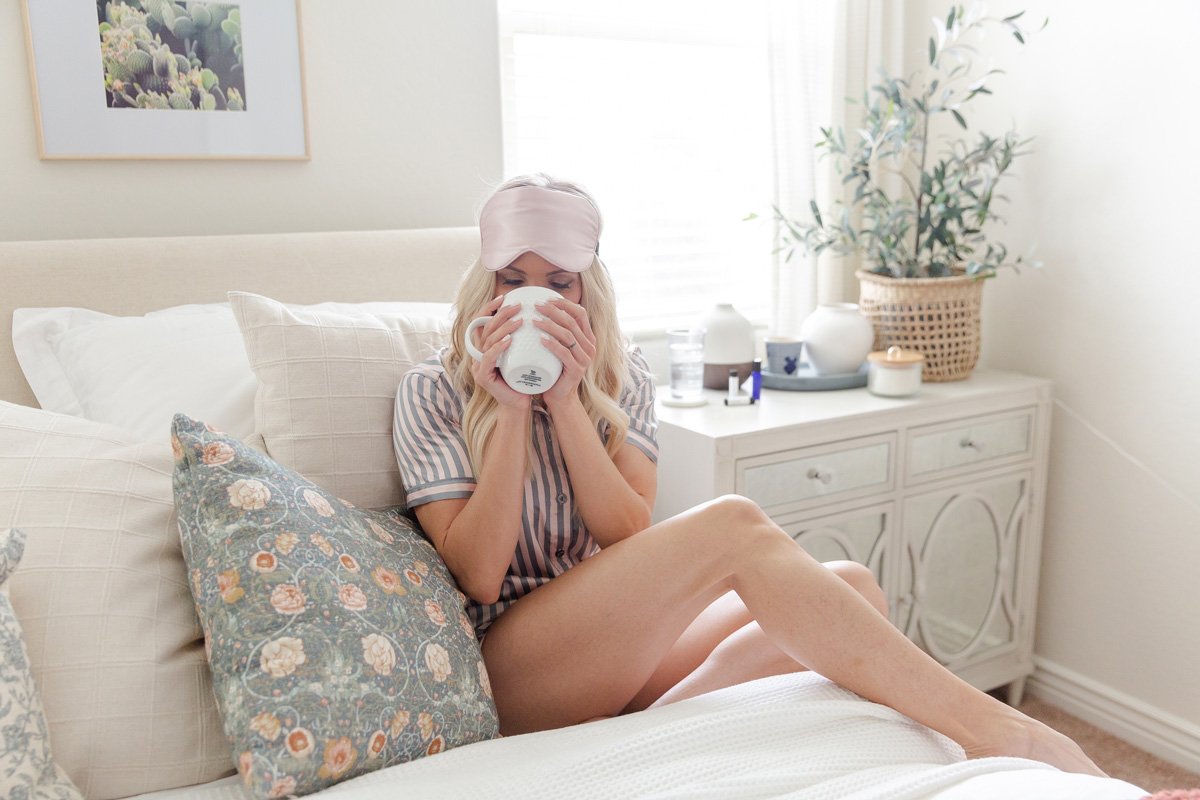
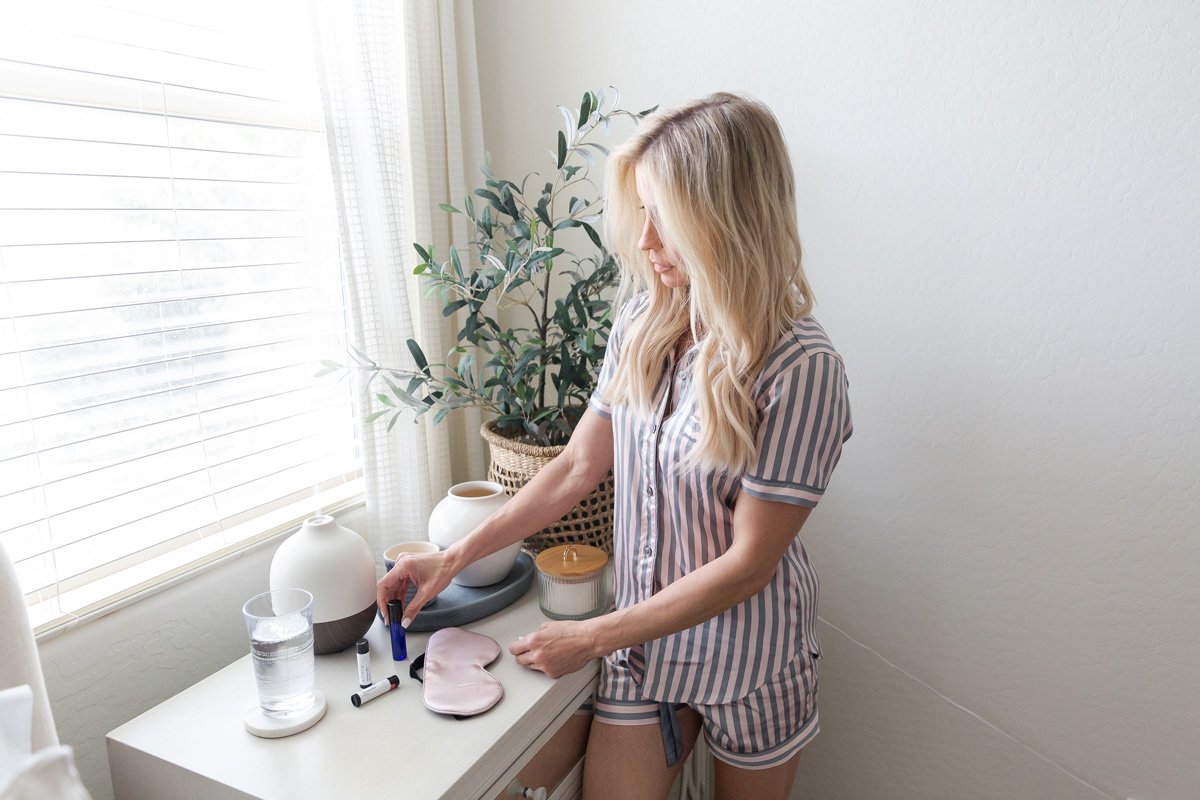
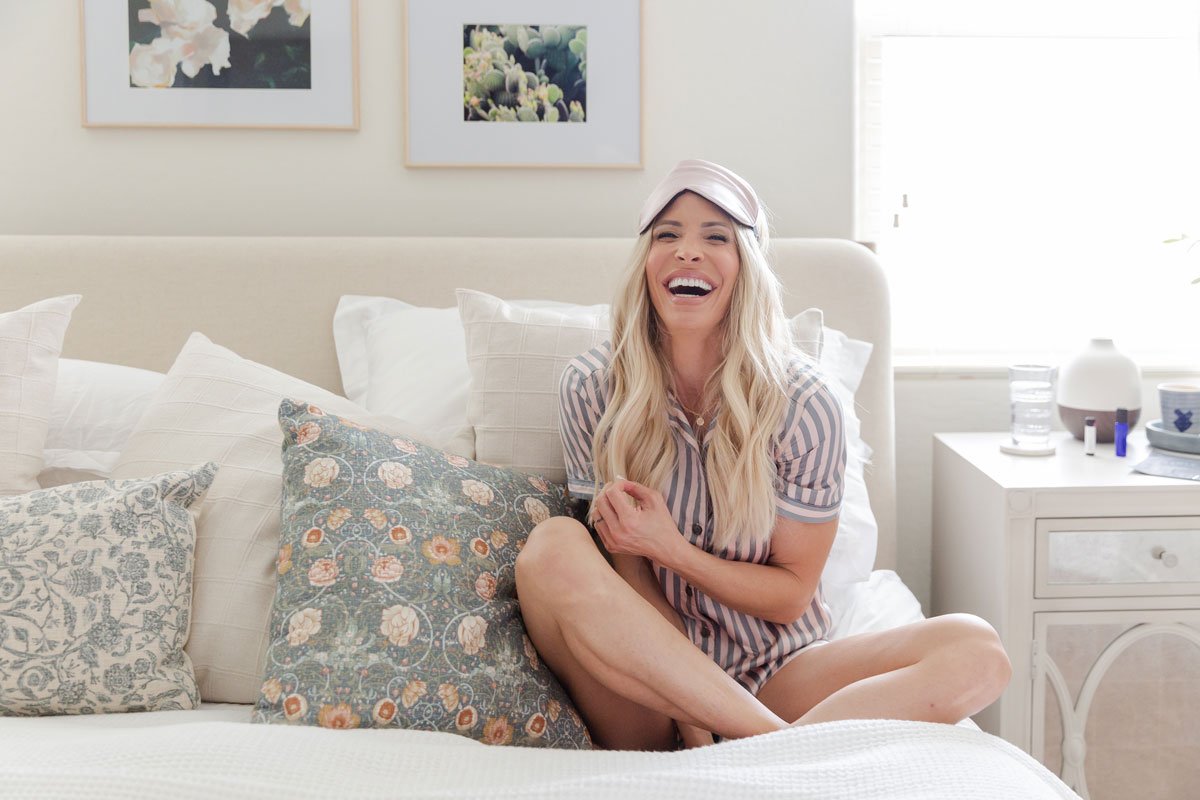
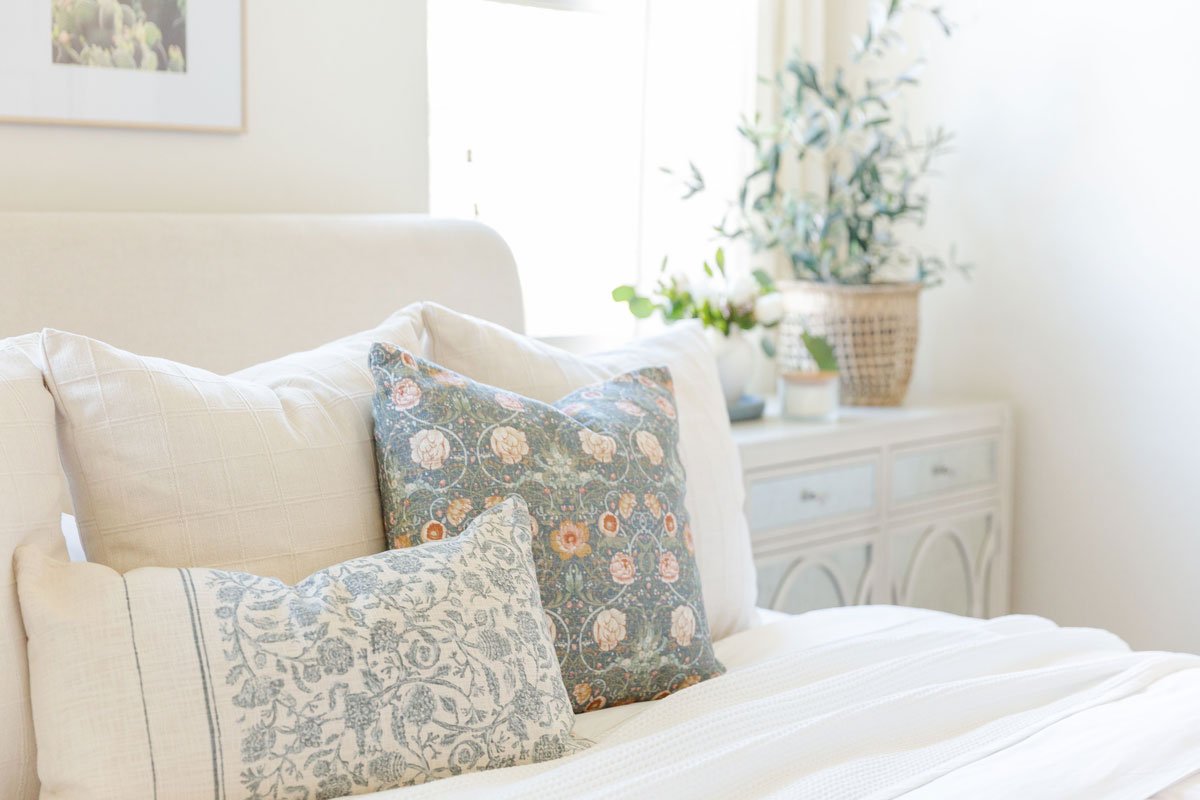


2 Responses
Thank you so much
Working nights. And sometimes eating right before bed.